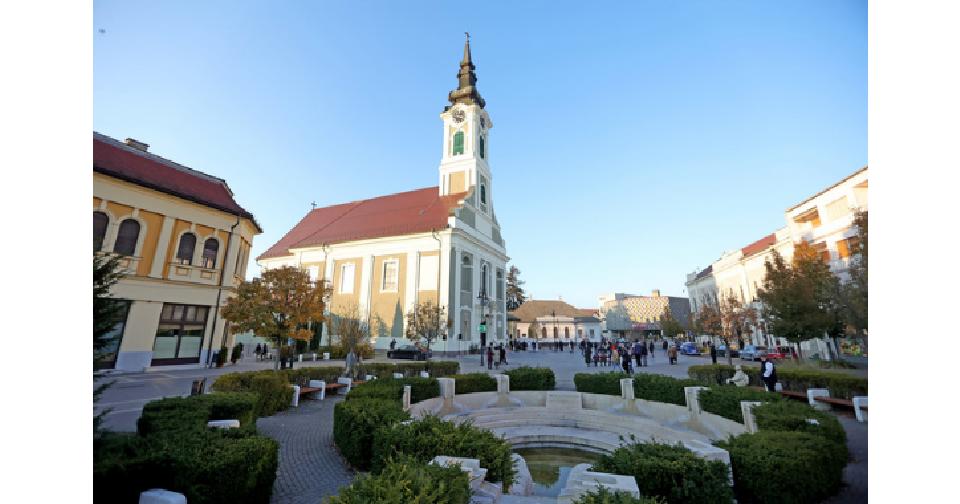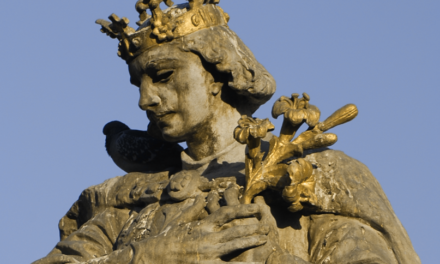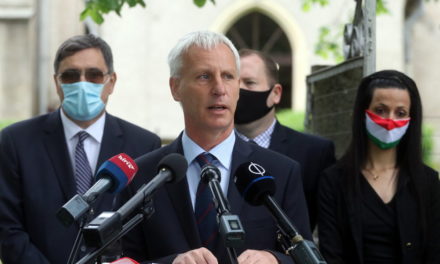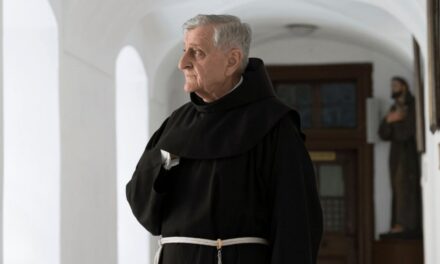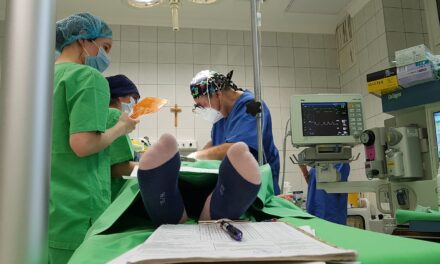Before the thanksgiving Mass, Miklós Soltész, the Prime Minister's Secretary of State responsible for church and ethnic relations, said, quoting Kun Klebelsberg: "A nation only acquires the right to the land that is its homeland, if it connects it to itself, to its national genius, with immortal works. Apart from the blood shed on the land of the homeland, the works and creations are the ones through which the nation marks itself inseparably with the land of the homeland."
According to the Secretary of State, the history of Baja definitely connects the mentioned "blood spilled on the ground and the creations". He recalled that during the destruction committed against Christianity during the Turkish era, a church in Baja was turned into a mosque, but even after the expulsion of the Turks, the people of Baja and the surrounding area struggled a lot.
He said that it was not by chance that Baja was given the status of a market town at the end of the 1600s, and "we must not forget what the Catholic Church itself fought for in order to be able to rebuild its churches again and again."
He emphasized: in the past centuries, the church in the city center has also undergone huge changes. Its predecessor stood for only a few decades, and then the construction of today's Church of the Apostles Saints Peter and Paul began 280 years ago. Thanks go to the people living in and around Baja, who endured the many destructions, as well as the ancestors who built the church and those who came here after the Turkish destruction, the Bosnians, Serbs, German and Hungarian settlers, since "the respect and esteem for them it obliges everyone," said Miklós Soltész. The settling peoples shed their blood and left behind works and creations, he added, in the words of Klebelsberg, "they jointly earned the right to this land with both their blood and their works".
The Secretary of State said that "the task is mandatory" and for this he thanked all those who built or renovated kindergartens and schools, churches and chapels for churches and nationalities throughout Baja.
Róbert Zsigó, the Fidesz parliamentary representative of the region, spoke about the fact that, thanks to the broad cooperation, the exterior of the downtown church was completely renewed in the last two years. The Hungarian government supported the works with 105 million forints, while the archdiocese supported the works with 20 million forints, and local and surrounding businesses and the faithful started collecting for the renovation.
One of the most important goals of the civilian government was to preserve, protect and, if necessary, renew values, including Christian values, the representative emphasized. In his opinion, this is also important from the point of view of heritage protection, and also to leave something for the next generations.
It was announced at the ceremony that the oldest parish in Baja is the one in the city center, whose church has not been renovated for decades. In the last two years, however, it received a new roof and paint, and the gates and doors were replaced.
The renovated church was blessed by Bábel Balázs, the archbishop of the Kalocsa-Kecskemét Archdiocese, after which he presented a thanksgiving mass.
The current church was started to be built in 1742 by parish priest Mihály Fabcsics with donations from the faithful, and was consecrated in 1764.
Source: Magyar Hírlap
Picture: Dániel Kiss

